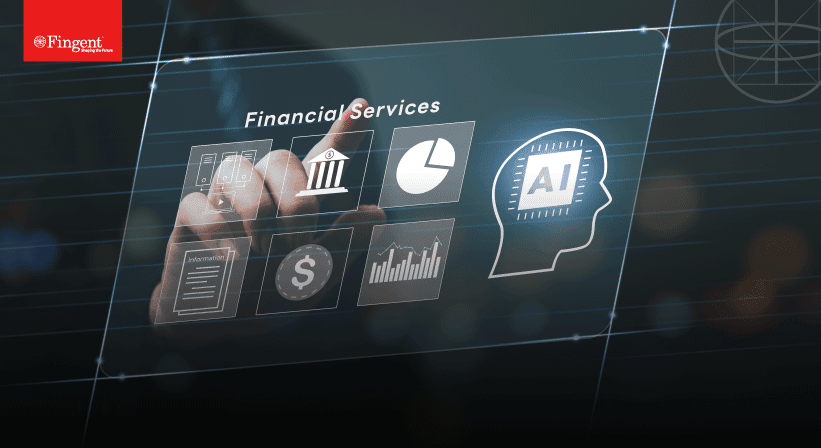Artificial Intelligence: Understanding The Different Types
Understanding The Types Of AI Systems To Better Transform Your Business
In this digital era, industries are witnessing the ability of multifaceted artificially intelligent systems performing tasks that mimic intelligent human behavior or even beyond. Artificial Intelligence today, manage large chunks of data and perform redundant tasks, allowing the human workforce to focus on core tasks. This saves cost and time and improves productivity significantly.
According to Gartner, the number of industries adopting AI has grown over 270% in the last 4 years. Technology giant, Google pledges $25 million USD in a new AI challenge named ‘AI For Social Good’. Understanding Artificial Intelligence Types, is important to get a clear picture of its potential.
Related Reading: Check out how Artificial Intelligence is revolutionizing small businesses.
Types Of Artificial Intelligence Calculation: Two Main Kinds Of AI Categorization
AI makes systems imitate human capabilities. Though AI can be classified into different types, the 2 main categories are defined as Type-1 and Type-2 and are based on AI capabilities and functionalities. Let us walk through the major classifications of AI types.
Type 1: AI-Based On Capabilities
1. Weak or Artificial Narrow Intelligence (ANI)
Weak or Narrow AI is a type of AI which performs assigned tasks using intelligence. This is the most common form of AI available in today’s industries. The Narrow AI cannot function beyond what is assigned to the system. This is because it is trained to perform only a single specific task.
ANI represents all AI machines, created and deployed till date. All artificially intelligent systems that can perform a dedicated task autonomously by making use of human-like abilities, fall under this category. As the name suggests, these machines have a narrow range of responsibilities.
Apple’s Siri, for instance, is an example for Narrow AI. Siri is trained to perform a limited pre-defined set of functions. Some other examples include self-driving cars, image and speech recognition systems.
The category of complex artificially intelligent systems that make use of deep learning and machine learning, fall under the category of Artificial Narrow Intelligence systems. These machines are categorized under the ‘Reactive’ and ‘Limited Memory’ machines, which is discussed in detail going forward in this article.
Know more about the key difference between deep learning and machine learning.
This video is made using InVideo.io
2. Artificial General Intelligence (AGI)
General Artificial Intelligence is a type of AI which can perform any intellectual tasks as humans. AGI machines are intended to perceive, learn and function entirely like humans. Additionally, the objective of devising AGI systems is to build multiple competencies which can significantly bring down the time needed to train these machines.
In a nutshell, AGI systems are machines that can replicate human multi-function capabilities. Currently, researchers around the globe are trying to design and develop such AI. Since there is no example as of now, it is termed, General AI.
3. Artificial Super Intelligence (ASI)
Artificial Super Intelligent systems can be best described as the zenith of AI research. ASI is intended not only to replicate multi-faceted human intelligence, but also possess faster memory, data processing, and analytical abilities.
This is a hypothetical concept of AI where researchers are trying to develop machines that can surpass humans. This is an outcome of General AI.
Type 2: AI-Based On Functionalities
1. Reactive Machines
The reactive machines perceive the real world directly and react according to the environment. The intelligence of Reactive Machines focuses on perceiving the real-world directly and reacting to it. An example of reactive machines is Google’s AlphaGo. AlphaGo is also a computer program that plays the board game. It involves a more sophisticated analysis method than that of DeepBlue. AlphaGo uses neural networks for evaluating game strategies.
2. Limited Memory
Limited memory machines are those that can retain memory for a short span of time. These machines have the capabilities as that of purely reactive machines. Additionally, limited memory machines can learn from previous experiences to make decisions. For instance, self-driving cars are limited memory machines that can store data such as the distance of the car with nearby cars, their recent speed, speed limit, lane markings, traffic signals, etc.
The observations from previous experiences are preprogrammed to the self-driving car’s system. This data, but is transient. That is, it is stored only for a limited period of time. This is because it is not programmed to be a part of the self-driving car’s library of experience, compared to the experience of human drivers.
Nearly every artificially intelligent system today uses limited memory technology. For instance, machines that make use of deep learning is a prime application of limited memory. These machines are trained with huge volumes of data sets which are stored in their memory as a reference model. An example of this is the AI that recognizes images. Image recognition AI is trained using a multitude of pictures along with their labels, as data sets.
Artificial intelligent systems such as chatbots and virtual assistants are also examples of limited memory machines.
3. Theory Of Mind Machines
Theory of Mind can be defined as a simulation. To be crisp, when a person considers himself in another person’s shoes, his brain tends to run simulations of the other person’s mind. Theory of mind is critical for human cognition. Additionally, it is crucial for social interaction as well. A breakdown of the theory of mind concept, for instance, can be illustrated as a case of autism.
Instead of a pre-programmed engine, AI scientists are looking forward to developing a series of neural networks. This series will be used to develop the ‘Theory Of Mind’.
‘Theory Of Mind’ machines are aimed at figuring out someone else’s intentions or goals.
4. Self-Awareness Machines
Self-Awareness machines exist hypothetically today. As the name suggests, these machines are supposed to be self-aware, like of the human brain. The machines can be described as the ultimate objective of AI scientists.
The goal of developing self-awareness machines is to make these capable of having emotions and needs as of humans.
Related Reading: You may also like to read about building an Intelligent App Ecosystem with AI.
To learn more about AI capabilities and how it can benefit your organization, Contact Fingent, top custom software development company, right away to explore strategies for implementing AI in your business. Unlock the potential of AI and achieve positive outcomes for your organization.
Stay up to date on what's new

Recommended Posts

20 Jun 2025
Creating MCP Servers for Building AI Agents
AI was once limited to internal pilots—impressive in demos, but rarely tied to measurable business outcomes. That’s changed. Today, AI systems are being integrated into workflows that impact decisions, operations,……

03 Jul 2024 Financial Services
AI in Business: Preparing Leaders For The Revolution
AI in Business is a present reality! It’s a building revolution that is all-encompassing and is redefining business operations. You have only two options. Either ride on the crest of……

20 Jun 2024 Healthcare B2B
AI in Healthcare: Enhancing Patient Outcomes and Experience
Artificial Intelligence is a multi-talented assistant and has proven its worth in the healthcare industry. Healthcare organizations have found innumerable ways to use AI, from record maintenance to patient assistance.……

08 May 2024 Financial Services B2B
AI in Financial Services: Use Cases and Applications
Achieving perfection is no easy process. It is not impossible either. It takes a lot of effort and hard work but with the help of Artificial Intelligence, this process can……
Featured Blogs
Stay up to date on
what's new




















































